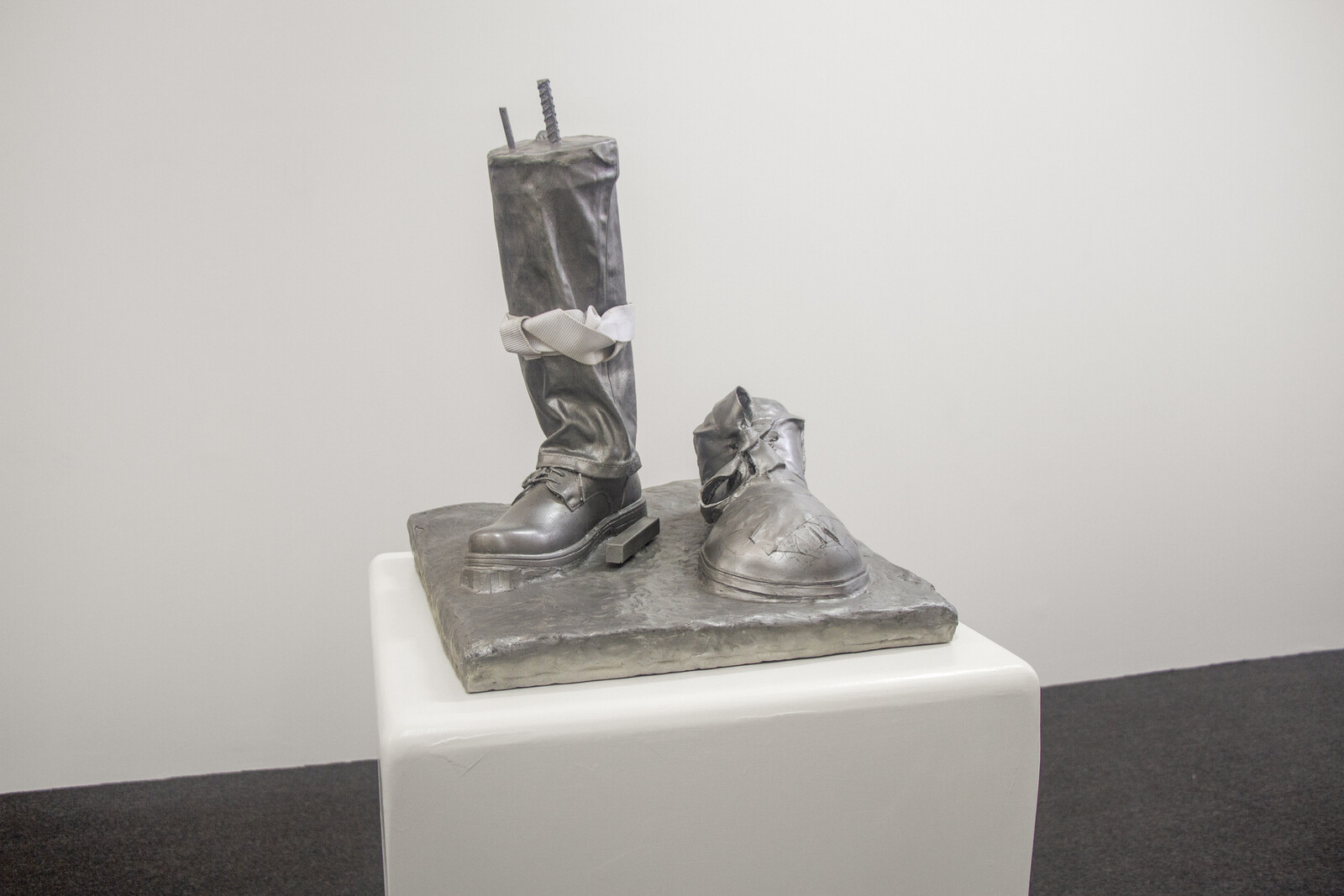People in Reverse
December 23, 2022–April 9, 2023
798 Art District
No. 4 Jiuxianqiao Road, Chaoyang District
100015 Beijing
China
Hours: Monday–Sunday 10am–7pm
T +86 10 5780 0200
From December 23, 2022 to April 9, 2023, UCCA presents Geof Oppenheimer: People in Reverse. The show marks Geof Oppenheimer’s (b. 1973, Washington, D.C.) first solo exhibition in China. For more than two decades, Oppenheimer has worked in the mediums of sculpture, video, drawing, and photography to explore how social and political relations are embedded within images and objects. Featuring new work commissioned by UCCA, this exhibition is centered on cast statues of three archetypal figures—the businessman, the flagbearer, and the observer—placed in an immersive environment formed out of custom-made walls, floor coverings, mass-produced products, and raw materials. These artworks were presented last year as part of the Diriyah Biennale, Feeling the Stones, which was curated by a team from UCCA, in a space specially constructed to recreate the proportions of UCCA’s Central Gallery. The sculptures and their bespoke surroundings speak to our collective anxieties over figuration, symbolism, and archetype in contemporary art and the modern social economy. People in Reverse is curated by UCCA Curator Luan Shixuan.
Each of the three sculptures around which People in Reverse is organized presents an archetype from late capitalist society. In the Businessman (2019-2021) two cropped aluminum legs are posed with the slightest hint of contrapposto, one clad in a formal leather shoe, the other in a clown shoe. The juxtaposition of footwear undercuts the hagiographic nature of the sculptural traditions being referenced, along with the masculinity of “the businessman” as a stereotypical figure. The human body is absent from the bronze-cast the Flagbearer (2019-2021), yet its tone is equally subversive: the would-be nationalist grandeur of a rippling flag is transformed into a blank miniature less than half a meter tall. In the Observer (2019-2021), also cast in bronze, a life-sized gloved hand holds a magnifying glass in front of a tablet. Like the flag, the tablet is blank, and the lens of the magnifying glass is actually opaque metal. While the laboratory cart that forms the bottom half of the piece implies the context is conditional and moveable, the piece remains defiantly obscure, suggesting that some forms of knowledge may remain ultimately unknowable.
In a carefully considered approach towards presentation recalling theatrical set design, these figures are surrounded by a labyrinthine array of walls, around which a number of additional images and objects have been arranged. In the exhibition catalogue, David J. Getsy, Eleanor Shea Professor of Art History at University of Virginia, comments that these disparate elements are united by the “central allegory” of “exposed structure,” discernable in the sculptures’ rough unpolished textures and how the walls readily reveal their metal and drywall skeletons. Other details gesture towards the origins and underlying structures behind large-scale power dynamics or social and economic systems, from a photograph of one of the oldest mines in the world (Social_Flat_Backstory, 2020), to a projector supported by a metal arm, playing an animation in which lines morph between male- and female-coded hairstyles (queens image, kings form, 2020), and an assortment of hand-dyed textiles spread across the floor.
In zeroing in on these fragments of contemporary life, Oppenheimer encourages the viewer to reexamine reality with a new appreciation. People in Reverse offers no easy answers, but by demonstrating the brittle fragility of the economic structures we live under, heroic narratives, and hierarchies of knowledge—to name just a few of its conceptual targets—it provides a potent space for the viewer to question and begin to think beyond the quandaries of the contemporary condition.
UCCA has also produced a bilingual publication designed by the artist and David Khan-Giordano, which serves as an essential component of the exhibition and features commissioned essays by David J. Getsy, dramaturge Zhao Chuan, and UCCA Director Philip Tinari.

